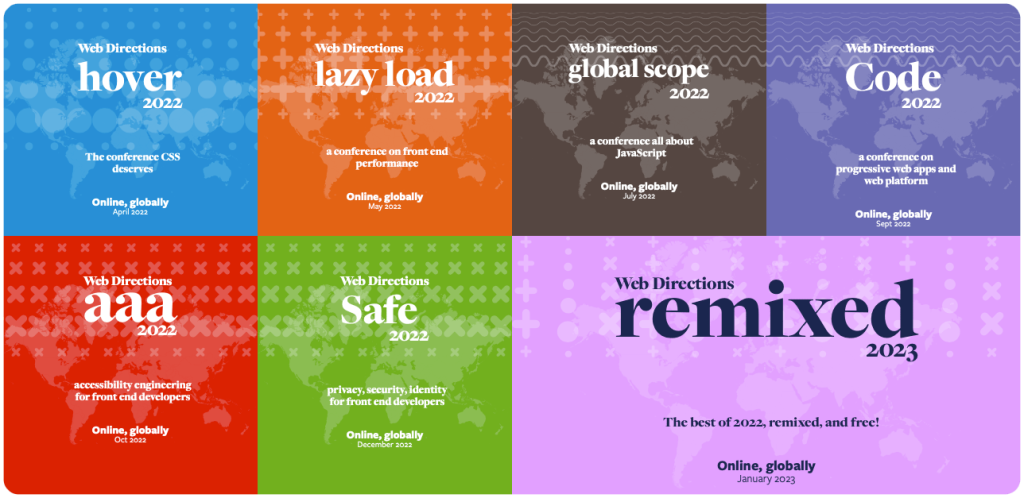The state of the developer job market
I’ve known Steve Gilles, founder of Lookahead, a fantastic Australian developer recruitment agency, more or less since they started back in 2012. Lookahead rightly has a tremendous reputation, not least because of the fantastic people who work for them–folks like Fiona Chan, one of the founders of SydCSS, and long term developer herself.
Long time supporters of Web Directions, they really know the industry, so in the wake of 2020, I asked Steve whether he might share some insights into how he sees the market for developer jobs right now, and in the near future, with some great thoughts for job seekers and employers alike.
John: Covid in 2020, at least in the earlier stages, seemed to really knock the job market for developer talent around–some great folks I know of were let go from a number of often high profile companies. How did the rest of the year play out? And where do you see the state of the talent market now? Have things improved?
Steve: When Covid hit great people and even entire teams were let go all at once. For a brief moment it was easy to hire a developer.
The companies who were growing despite the pandemic did very well in buying the dip. EdTech companies and SaaS businesses in particular. Atlassian hired well and I remember they did a big hiring campaign in 2009 during the GFC. I take my hat off to them.
By July 2020 hiring was back to its normal degree of difficulty. Not many companies were hiring, but that was matched with a market where developers were less keen to move. There was this perceived lack of safety in the market. “If I take this new job and don’t like it, will there be another to replace it?”
You also had people in survival mode adjusting to the new normal. Interviewing is hard, as is joining a new company. Many, understandably, didn’t have capacity.
John: What skills are you seeing in demand right now?
Steve: The technologies in the Javascript ecosystem are in demand now as much as ever. I love the Ruby on Rails community and have enjoyed the Ruby renaissance that’s happened since Covid.
We’ve hired more CTO and Head of Engineering roles than ever too. It’s a challenging time to go through induction, but teams are open to change.
John: What’s capabilities are perhaps a bit softer in terms of employer demand?
Steve: We’re narrowly focused on certain areas on web dev, and honestly it’s all growing.
John: We’ve seen many secular trends accelerated by years due to covid, not least of which is remote work–what impact do you think that’s having, and will have, on the job market?
Steve: It’s opened up new talent markets for sure. Say you’re Sydney based and now working remotely, you can start hiring people in South Australia. You go from paying market salary in NSW to being above market in SA.
On the other hand, we’re seeing that with US companies paying above market for Australians. They’re hiring some of our best and brightest and letting them work remotely. So we’re now competing with Apple, Square, Automattic, Gitlab and others.
We do have some cover here thanks to our timezone. Tech giants are busy looking to areas in North America that aren’t California and New York. Eventually those markets will be tapped out and it’ll be easier to work around our timezone issues. Some hefty competition is coming.
Companies are getting better at remote too. We’ve had this mandatory dress rehearsal. Executives were remote too so budgets are being assigned to hardware and software that make collaboration easier.
During the downturn a lot of companies were time rich for once. Many used that time to improve processes, and are reaping the rewards for those efforts now.
John: What do you think employers should be thinking about in the light of that?
Put yourself in the shoes of the developers you want to attract. What does a great life look like to them? It’s not necessarily 100% on-site or remote. It’s flexibility to oscillate between the two. It’s about having the freedom to change as their life does.
What’s constant is that they’ll always want to feel valued, and work with other smart people. They’ll all be different, so you have to listen and adapt. And also celebrate change – not everyone is going to suit your environment all of the time.
John: And how about developers? how should they be thinking about their career development in the context of these shifts?
Steve: Self awareness, an open mind and the willingness to experiment because everything is up for grabs now. In some ways it was easier when the norm was that everybody went to an office 5 days per week.
There’s enough opportunity out there for a developer to set up their work and life however they like. With that freedom comes responsibility. You need self awareness to spot when the way that you used to love working no longer works for you, before it leads to burnout.
No one way of working is right or wrong. On-site, remote and hybrid models all have their challenges. My awesome colleague Debbie said to me “You’re flexible for me, so I’ll be flexible for you”. That really resonated with me.
In 2022 we have a whole series of events for Front End Developers
Across 2022 Web Directions is presenting our series of online conferences for front end designers and developers. Focussed deep dives, they go far beyond what you might expect from conference programs.
Priced individually from $195, or attend all 6, plus get access to our conference presentation platform Conffab for just $595, or $59 a month.
Great reading, every weekend.
We round up the best writing about the web and send it your way each Friday.


